- Home
- J. K. Rowling
Tales of Beedle the Bard Page 3
Tales of Beedle the Bard Read online
Page 3
Albus Dumbledore on “The Warlock’s Hairy Heart”
As we have already seen, Beedle’s first two tales attracted criticism of their themes of generosity, tolerance and love. “The Warlock’s Hairy Heart”, however, does not appear to have been modified or much criticised in the hundreds of years since it was first written; the story as I eventually read it in the original runes was almost exactly that which my mother had told me. That said, “The Warlock’s Hairy Heart” is by far the most gruesome of Beedle’s offerings, and many parents do not share it with their children until they think they are old enough not to suffer nightmares.8
Why, then, the survival of this grisly tale? I would argue that “The Warlock’s Hairy Heart” has survived intact through the centuries because it speaks to the dark depths in all of us. It addresses one of the greatest, and least acknowledged, temptations of magic: the quest for invulnerability.
Of course, such a quest is nothing more or less than a foolish fantasy. No man or woman alive, magical or not, has ever escaped some form of injury, whether physical, mental or emotional. To hurt is as human as to breathe. Nevertheless, we wizards seem particularly prone to the idea that we can bend the nature of existence to our will. The young warlock9 in this story, for instance, decides that falling in love would adversely affect his comfort and security. He sees love as a humiliation, a weakness, a drain on a person’s emotional and material resources.
Of course, the centuries-old trade in love potions shows that our fictional wizard is hardly alone in seeking to control the unpredictable course of love. The search for a true love potion10 continues to this day, but no such elixir has yet been created, and leading potioneers doubt that it is possible.
The hero in this tale, however, is not even interested in a simulacrum of love that he can create or destroy at will. He wants to remain for ever uninfected by what he regards as a kind of sickness, and therefore performs a piece of Dark Magic that would not be possible outside a storybook: he locks away his own heart.
The resemblance of this action to the creation of a Horcrux has been noted by many writers. Although Beedle’s hero is not seeking to avoid death, he is dividing what was clearly not meant to be divided – body and heart, rather than soul – and in doing so, he is falling foul of the first of Adalbert Waffling’s Fundamental Laws of Magic:
Tamper with the deepest mysteries – the source of life, the essence of self – only if prepared for consequences of the most extreme and dangerous kind.
And sure enough, in seeking to become superhuman this foolhardy young man renders himself inhuman. The heart he has locked away slowly shrivels and grows hair, symbolising his own descent to beasthood. He is finally reduced to a violent animal who takes what he wants by force, and he dies in a futile attempt to regain what is now for ever beyond his reach – a human heart.
Though somewhat dated, the expression “to have a hairy heart” has passed into everyday wizarding language to describe a cold or unfeeling
witch or wizard. My maiden aunt, Honoria, always alleged that she called off her engagement to a wizard in the Improper Use of Magic Office because she discovered in time that “he had a hairy heart”. (It was rumoured, however, that she actually discovered him in the act of fondling some Horklumps,11 which she found deeply shocking.) More recently, the self-help book The Hairy Heart: A Guide to Wizards Who Won’t Commit12 has topped bestseller lists.
Babbitty Rabbitty and her Cackling Stump
A long time ago, in a far-off land, there lived a foolish king who decided that he alone should have the power of magic.
He therefore commanded the head of his army to form a Brigade of Witch-Hunters, and issued them with a pack of ferocious black hounds. At the same time, the King caused proclamations to be read in every village and town across the land: “Wanted by the King, an Instructor in Magic.”
No true witch or wizard dared volunteer for the post, for they were all in hiding from the Brigade of Witch-Hunters.
However, a cunning charlatan with no magical power saw a chance of enriching himself, and arrived at the palace, claiming to be a wizard of enormous skill. The charlatan performed a few simple tricks, which convinced the foolish King of his magical powers, and was immediately appointed Grand Sorcerer in Chief, the King’s Private Magic Master.
The charlatan bade the King give him a large sack of gold, so that he might purchase wands and other magical necessities. He also requested several large rubies, to be used in the casting of curative charms, and a silver chalice or two, for the storing and maturing of potions. All these things the foolish King supplied.
The charlatan stowed the treasure safely in his own house and returned to the palace grounds.
He did not know that he was being watched by an old woman who lived in a hovel on the edge of the grounds. Her name was Babbitty, and she was the washerwoman who kept the palace linens soft, fragrant and white. Peeping from behind her drying sheets, Babbitty saw the charlatan snap two twigs from one of the King’s trees and disappear into the palace.
The charlatan gave one of the twigs to the King and assured him that it was a wand of tremendous power.
“It will only work, however,” said the charlatan, “when you are worthy of it.”
Every morning the charlatan and the foolish King walked out into the palace grounds, where they waved their wands and shouted nonsense at the sky. The charlatan was careful to perform more tricks, so that the King remained convinced of his Grand Sorcerer’s skill, and of the power of the wands that had cost so much gold.
One morning, as the charlatan and the foolish King were twirling their twigs, and hopping in circles, and chanting meaningless rhymes, a loud cackling reached the King’s ears. Babbitty the washerwoman was watching the King and the charlatan from the window of her tiny cottage, and was laughing so hard she soon sank out of sight, too weak to stand.
“I must look most undignified, to make the old washerwoman laugh so!” said the King. He ceased his hopping and twig twirling, and frowned. “I grow weary of practice! When shall I be ready to perform real spells in front of my subjects, Sorcerer?”
The charlatan tried to soothe his pupil, assuring him that he would soon be capable of astonishing feats of magic, but Babbitty’s cackling had stung the foolish King more than the charlatan knew.
“Tomorrow,” said the King, “we shall invite our court to watch their King perform magic!”
The charlatan saw that the time had come to take his treasure and flee.
“Alas, Your Majesty, it is impossible! I had forgotten to tell Your Majesty that I must set out on a long journey tomorrow –”
“If you leave this palace without my permission, Sorcerer, my Brigade of Witch-Hunters will hunt you down with their hounds! Tomorrow morning you will assist me to perform magic for the benefit of my lords and ladies, and if anybody laughs at me, I shall have you beheaded!”
The King stormed back to the palace, leaving the charlatan alone and afraid. Not all his cunning could save him now, for he could not run away, nor could he help the King with magic that neither of them knew.
Seeking a vent for his fear and his anger, the charlatan approached the window of Babbitty the washerwoman. Peering inside, he saw the little old lady sitting at her table, polishing a wand. In a corner behind her, the King’s sheets were washing themselves in a wooden tub.
The charlatan understood at once that Babbitty was a true witch, and that she who had given him his awful problem could also solve it.
“Crone!” roared the charlatan. “Your cackling has cost me dear! If you fail to help me, I shall denounce you as a witch, and it will be you who is torn apart by the King’s hounds!”
Old Babbitty smiled at the charlatan and assured him that she would do everything in her power to help.
The charlatan instructed her to conceal herself inside a bush while the King gave his magical display, and to perform the King’s spells for him, without his knowledge. Babbitty agreed to the plan but asked
one question.
“What, sir, if the King attempts a spell Babbitty cannot perform?”
The charlatan scoffed.
“Your magic is more than equal to that fool’s imagination,” he assured her, and he retired to the castle, well pleased with his own cleverness.
The following morning all the lords and ladies of the kingdom assembled in the palace grounds. The King climbed on to a stage in front of them, with the charlatan by his side.
“I shall firstly make this lady’s hat disappear!” cried the King, pointing his twig at a noblewoman.
From inside a bush nearby, Babbitty pointed her wand at the hat and caused it to vanish. Great was the astonishment and admiration of the crowd, and loud their applause for the jubilant King.
“Next, I shall make that horse fly!” cried the King, pointing his twig at his own steed.
From inside the bush, Babbitty pointed her wand at the horse and it rose high into the air.
The crowd was still more thrilled and amazed, and they roared their appreciation of their magical King.
“And now,” said the King, looking all around for an idea; and the Captain of his Brigade of Witch-Hunters ran forwards.
“Your Majesty,” said the Captain, “this very morning, Sabre died of eating a poisonous toadstool! Bring him back to life, Your Majesty, with your wand!”
And the Captain heaved on to the stage the lifeless body of the largest of the witch-hunting hounds.
The foolish King brandished his twig and pointed it at the dead dog. But inside the bush, Babbitty smiled, and did not trouble to lift her wand, for no magic can raise the dead.
When the dog did not stir, the crowd began first to whisper, and then to laugh. They suspected that the King’s first two feats had been mere tricks after all.
“Why doesn’t it work?” the King screamed at the charlatan, who bethought himself of the only ruse left to him.
“There, Your Majesty, there!” he shouted, pointing at the bush where Babbitty sat concealed. “I see her plain, a wicked witch who is blocking your magic with her own evil spells! Seize her, somebody, seize her!”
Babbitty fled from the bush, and the Brigade of Witch-Hunters set off in pursuit, unleashing their hounds, who bayed for Babbitty’s blood. But as she reached a low hedge, the little witch vanished from sight, and when the King, the charlatan and all the courtiers gained the other side, they found the pack of witch-hunting hounds barking and scrabbling around a bent and aged tree.
“She has turned herself into a tree!” screamed the charlatan and, dreading lest Babbitty turn back into a woman and denounce him, he added, “Cut her down, Your Majesty, that is the way to treat evil witches!”
An axe was brought at once, and the old tree was felled to loud cheers from the courtiers and the charlatan.
However, as they were making ready to return to the palace, the sound of loud cackling stopped them in their tracks.
“Fools!” cried Babbitty’s voice from the stump they had left behind.
“No witch or wizard can be killed by being cut in half! Take the axe, if you do not believe me, and cut the Grand Sorcerer in two!”
The Captain of the Brigade of Witch-Hunters was eager to make the experiment, but as he raised the axe the charlatan fell to his knees, screaming for mercy and confessing all his wickedness. As he was dragged away to the dungeons, the tree stump cackled more loudly than ever.
“By cutting a witch in half, you have unleashed a dreadful curse upon your kingdom!” it told the petrified King. “Henceforth, every stroke of harm that you inflict upon my fellow witches and wizards will feel like an axe stroke in your own side, until you will wish you could die of it!”
At that, the King fell to his knees too, and told the stump that he would issue a proclamation at once, protecting all the witches and wizards of the kingdom, and allowing them to practise their magic in peace.
“Very good,” said the stump, “but you have not yet made amends to Babbitty!”
“Anything, anything at all!” cried the foolish King, wringing his hands before the stump.
“You will erect a statue of Babbitty upon me, in memory of your poor washerwoman, and to remind you for ever of your own foolishness!” said the stump.
The King agreed to it at once, and promised to engage the foremost sculptor in the land, and have the statue made of pure gold. Then the shamed King and all the noblemen and women returned to the palace, leaving the tree stump cackling behind them.
When the grounds were deserted once more, there wriggled from a hole between the roots of the tree stump a stout and whiskery old rabbit with a wand clamped between her teeth. Babbitty hopped out of the grounds and far away, and ever after a golden statue of the washerwoman stood upon the tree stump, and no witch or wizard was ever persecuted in the kingdom again.
Albus Dumbledore on “Babbitty Rabbitty and her Cackling Stump”
The story of “Babbitty Rabbitty and her Cackling Stump” is, in many ways, the most “real” of Beedle’s tales, in that the magic described in the story conforms, almost entirely, to known magical laws.
It was through this story that many of us first discovered that magic could not bring back the dead – and a great disappointment and shock it was, convinced as we had been, as young children, that our parents would be able to awaken our dead rats and cats with one wave of their wands. Though some six centuries have elapsed since Beedle wrote this tale, and while we have devised innumerable ways of maintaining the illusion of our loved ones’ continuing presence,13 wizards still have not found a way of reuniting body and soul once death has occurred. As the eminent wizarding philosopher Bertrand de Pensées-Profondes writes in his celebrated work A Study into the Possibility of Reversing the Actual and Metaphysical Effects of Natural Death, with Particular Regard to the Reintegration of Essence and Matter: “Give it up. It’s never going to happen.”
The tale of Babbitty Rabbitty does, however, give us one of the earliest literary mentions of an Animagus, for Babbitty the washerwoman is possessed of the rare magical ability to transform into an animal at will.
Animagi make up a small fraction of the wizarding population. Achieving perfect, spontaneous human to animal transformation requires much study and practice, and many witches and wizards consider that their time might be better employed in other ways. Certainly, the application of such a talent is limited unless one has a great need of disguise or concealment. It is for this reason that the Ministry of Magic has insisted upon a register of Animagi, for there can be no doubt that this kind of magic is of greatest use to those engaged in surreptitious, covert or even criminal activity.14
Whether there was ever a washerwoman who was able to transform into a rabbit is open to doubt; however, some magical historians have suggested that Beedle modelled Babbitty on the famous French sorceress Lisette de Lapin, who was convicted of witchcraft in Paris in 1422. To the astonishment of her Muggle guards, who were later tried for helping the witch to escape, Lisette vanished from her prison cell the night before she was due to be executed. Although it has never been proven that Lisette was an Animagus who managed to squeeze through the bars of her cell window, a large white rabbit was subsequently seen crossing the English Channel in a cauldron with a sail fitted to it, and a similar rabbit later became a trusted advisor at the court of King Henry VI.15
The King in Beedle’s story is a foolish Muggle who both covets and fears magic. He believes that he can become a wizard simply by learning incantations and waving a wand.16 He is completely ignorant of the true nature of magic and wizards, and therefore swallows the preposterous suggestions of both the charlatan and Babbitty. This is certainly typical of a particular type of Muggle thinking: in their ignorance, they are prepared to accept all sorts of impossibilities about magic, including the proposition that Babbitty has turned herself into a tree that can still think and talk. (It is worth noting at this point, however, that while Beedle uses the talking-tree device to show us how ignorant the Muggle K
ing is, he also asks us to believe that Babbitty can talk while she is a rabbit. This might be poetic licence, but I think it more likely that Beedle had only heard about Animagi, and never met one, for this is the only liberty that he takes with magical laws in the story. Animagi do not retain the power of human speech while in their animal form, although they keep all their human thinking and reasoning powers. This, as every schoolchild knows, is the fundamental difference between being an Animagus, and Transfiguring oneself into an animal. In the case of the latter, one would become the animal entirely, with the consequence that one would know no magic, be unaware that one had ever been a wizard, and would need somebody else to Transfigure one back to one’s original form.)
I think it possible that in choosing to make his heroine pretend to turn into a tree, and threaten the King with pain like an axe stroke in his own side, Beedle was inspired by real magical traditions and practices. Trees with wand-quality wood have always been fiercely protected by the wandmakers who tend them, and cutting down such trees to steal them risks incurring not only the malice of the Bowtruckles17 usually nesting there, but also the ill effect of any protective curses placed around them by their owners. In Beedle’s time, the Cruciatus Curse had not yet been made illegal by the Ministry of Magic,18 and could have produced precisely the sensation with which Babbitty threatens the King.
The Tale of the Three Brothers
There were once three brothers who were travelling along a lonely, winding road at twilight. In time, the brothers reached a river too deep to wade through and too dangerous to swim across. However, these brothers were learned in the magical arts, and so they simply waved their wands and made a bridge appear across the treacherous water. They were halfway across it when they found their path blocked by a hooded figure.
And Death spoke to them. He was angry that he had been cheated out of three new victims, for travellers usually drowned in the river. But Death was cunning. He pretended to congratulate the three brothers upon their magic, and said that each had earned a prize for having been clever enough to evade him.

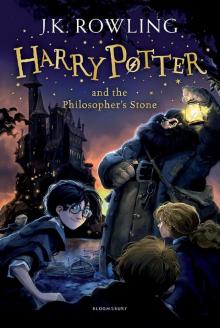 Harry Potter and the Philosophers Stone
Harry Potter and the Philosophers Stone Harry Potter and the Chamber of Secrets
Harry Potter and the Chamber of Secrets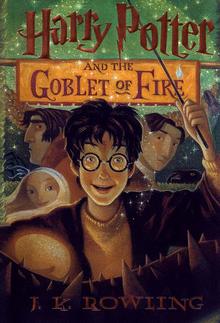 Harry Potter and the Goblet of Fire
Harry Potter and the Goblet of Fire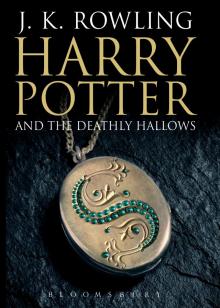 Harry Potter and the Deathly Hallows
Harry Potter and the Deathly Hallows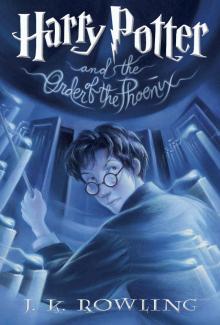 Harry Potter and the Order of the Phoenix
Harry Potter and the Order of the Phoenix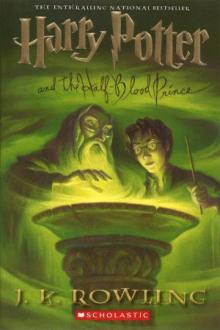 Harry Potter and the Half-Blood Prince
Harry Potter and the Half-Blood Prince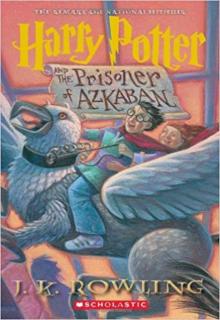 Harry Potter and the Prisoner of Azkaban
Harry Potter and the Prisoner of Azkaban Fantastic Beasts and Where to Find Them
Fantastic Beasts and Where to Find Them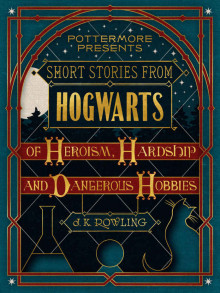 Short Stories from Hogwarts of Heroism, Hardship and Dangerous Hobbies
Short Stories from Hogwarts of Heroism, Hardship and Dangerous Hobbies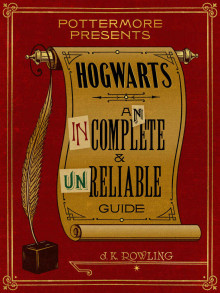 Hogwarts: An Incomplete and Unreliable Guide
Hogwarts: An Incomplete and Unreliable Guide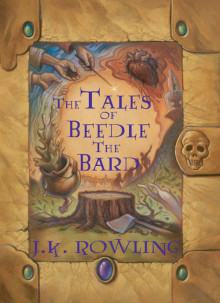 The Tales of Beedle the Bard
The Tales of Beedle the Bard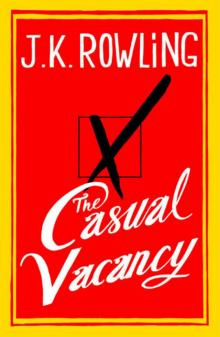 The Casual Vacancy
The Casual Vacancy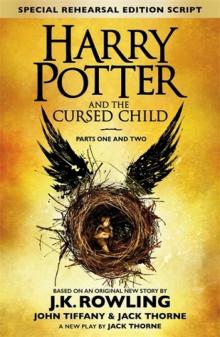 Harry Potter and the Cursed Child
Harry Potter and the Cursed Child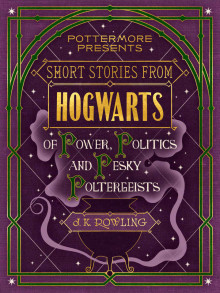 Short Stories from Hogwarts of Power, Politics and Pesky Poltergeists
Short Stories from Hogwarts of Power, Politics and Pesky Poltergeists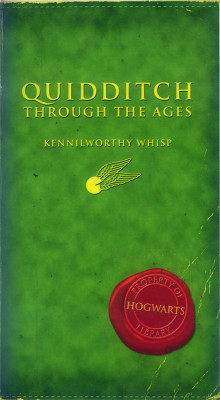 Quidditch Through the Ages
Quidditch Through the Ages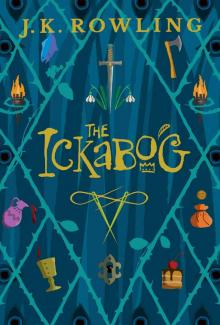 The Ickabog
The Ickabog![Fantastic Beasts, The Crimes of Grindelwald [UK] Read online](http://i1.bookreadfree.com/i/03/19/fantastic_beasts_the_crimes_of_grindelwald_uk_preview.jpg) Fantastic Beasts, The Crimes of Grindelwald [UK]
Fantastic Beasts, The Crimes of Grindelwald [UK]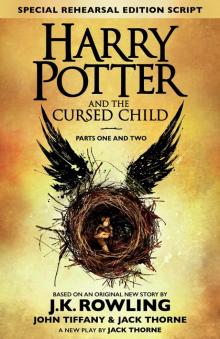 Harry Potter and the Cursed Child: Parts One and Two
Harry Potter and the Cursed Child: Parts One and Two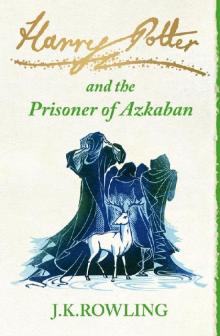 The Prisoner of Azkaban
The Prisoner of Azkaban Fantastic Beasts: The Crimes of Grindelwald
Fantastic Beasts: The Crimes of Grindelwald The Hogwarts Library Collection
The Hogwarts Library Collection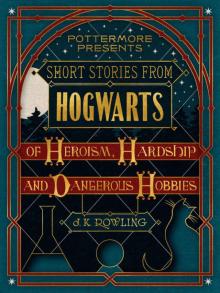 Short Stories from Hogwarts of Heroism, Hardship and Dangerous Hobbies (Kindle Single) (Pottermore Presents)
Short Stories from Hogwarts of Heroism, Hardship and Dangerous Hobbies (Kindle Single) (Pottermore Presents)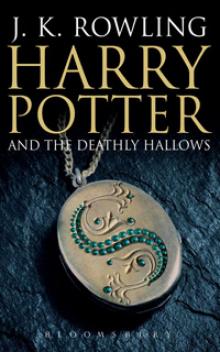 Harry Potter and the Deathly Hallows hp-7
Harry Potter and the Deathly Hallows hp-7 Hogwarts: An Incomplete and Unreliable Guide (Kindle Single) (Pottermore Presents)
Hogwarts: An Incomplete and Unreliable Guide (Kindle Single) (Pottermore Presents)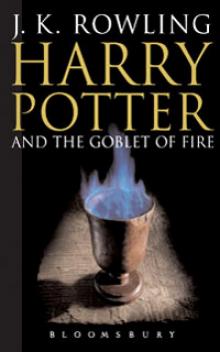 Harry Potter and the Goblet of Fire hp-4
Harry Potter and the Goblet of Fire hp-4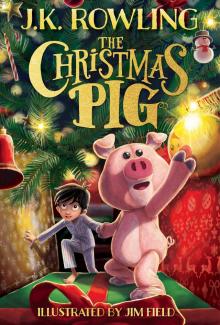 The Christmas Pig
The Christmas Pig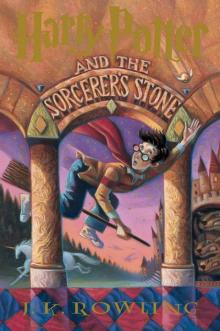 Harry Potter and the Sorcerer's Stone
Harry Potter and the Sorcerer's Stone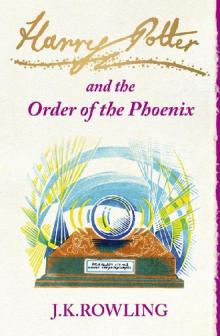 The Order of the Phoenix
The Order of the Phoenix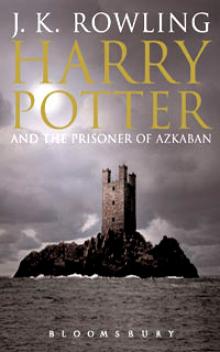 Harry Potter and the Prisoner of Azkaban hp-3
Harry Potter and the Prisoner of Azkaban hp-3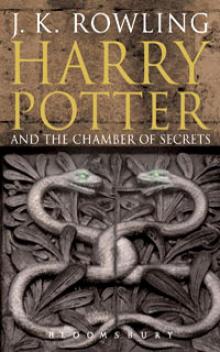 Harry Potter and the Chamber of Secrets hp-2
Harry Potter and the Chamber of Secrets hp-2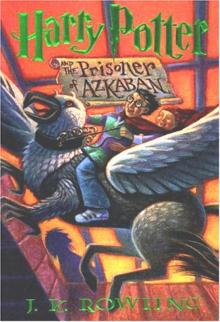 HP 3 - Harry Potter and the Prisoner of Azkaban
HP 3 - Harry Potter and the Prisoner of Azkaban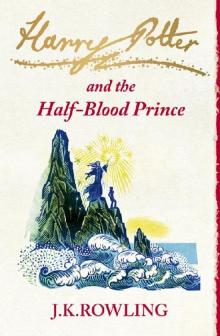 The Half-Blood Prince
The Half-Blood Prince The Hogwarts Collection
The Hogwarts Collection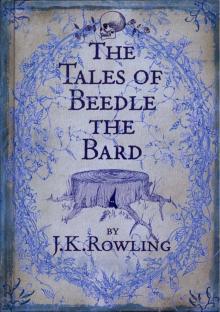 Tales of Beedle the Bard
Tales of Beedle the Bard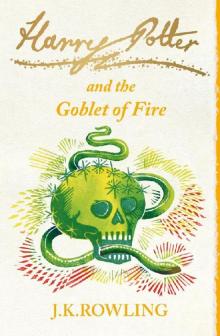 The Goblet of Fire
The Goblet of Fire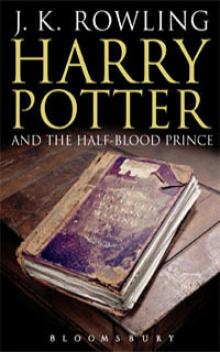 Harry Potter and the Half-Blood Prince hp-6
Harry Potter and the Half-Blood Prince hp-6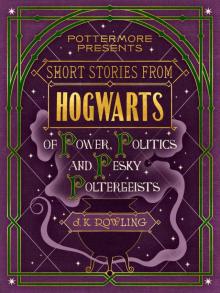 Short Stories from Hogwarts of Power, Politics and Pesky Poltergeists (Kindle Single) (Pottermore Presents)
Short Stories from Hogwarts of Power, Politics and Pesky Poltergeists (Kindle Single) (Pottermore Presents)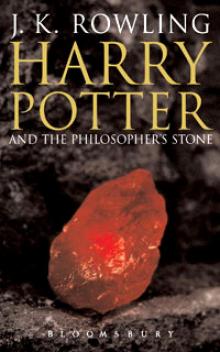 Harry Potter and the Sorcerer's Stone hp-1
Harry Potter and the Sorcerer's Stone hp-1